This is part of the Quaker Alphabet Project – click here for more information.
W is for Woodbrooke
I should start this with an acknowledgement that Woodbrooke is one of my favourite places – I have been lucky enough to learn and teach there. Life Artistry, the spiritual scrapbooking course I developed, has been taught there several times.
Woodbrooke is Europe’s only Quaker Study Centre. It is based in the former family home of the local (Quaker) chocolate maker, George Cadbury. Since 1903, Woodbrooke has provided education for those of any faith or none from around the world. It also runs courses at other venues – most recently in partnership with Swarthmore Hall, and for individual meetings when requested.
Among the courses offered are several that can be considered helpful to those responsible for running a Meeting House as well as a meeting. There are courses for Treasurers, Trustees, plus the annual ‘Managing Our Meeting Houses’ course which will run at the end of January.
This year’s Managing Our Meeting Houses weekend is full, but do look at next year. I highly recommend this weekend for both those managing the building, business and practical aspects, plus those overseeing that management – a time for inspiration, information and a sharing of good practises.
Woodbrooke on the Road can also help your local meeting or area meeting to develop a course to meet any needs that you may have.
W is for Websites
Friends House has set up a basic page for each Quaker Meeting in Britain – for example Leigh on Sea. They also have a page of Quaker meeting websites and a page of ideas on creating a website for your meeting.
Other meetings have set up more complicated sites – as part of their local Area Meeting or on their own. Central England Quakers covers a large geographical area while Kingston Quakers include photos of their new building, their terms and conditions and current leaflets.
What might you consider putting on your website? Well – it depends on who you are writing for.
- Are you writing for your own local worshipping group and don’t want to share that information?
- Are you writing for people who are looking to find Quakers to attend a Meeting for Worship or to hire a room?
- Who is going to maintain the site – are you going to look for volunteers or are you going to pay someone? (Yes, MBS does offer this.)
You can also link to other websites – for example Muswell Hill has a page showing who uses the building with links to the hirers’ own websites. Those pages also have a reciprocal link back to Muswell Hill so that visitors can explore that site as well.
Google for business is a free way to ensure that your meeting house shows up on searches across Google. Other sites such as Halls Hire will take your listing and promote it on their own site – you may find a local website run by your council or chamber of commerce.
To browse through all of the posts click on the Quaker A-Z link here or in the side bar.

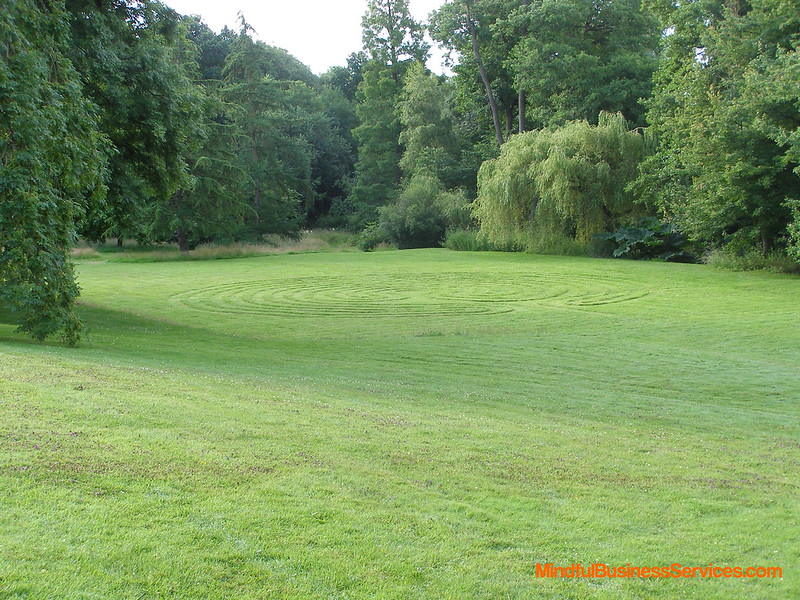
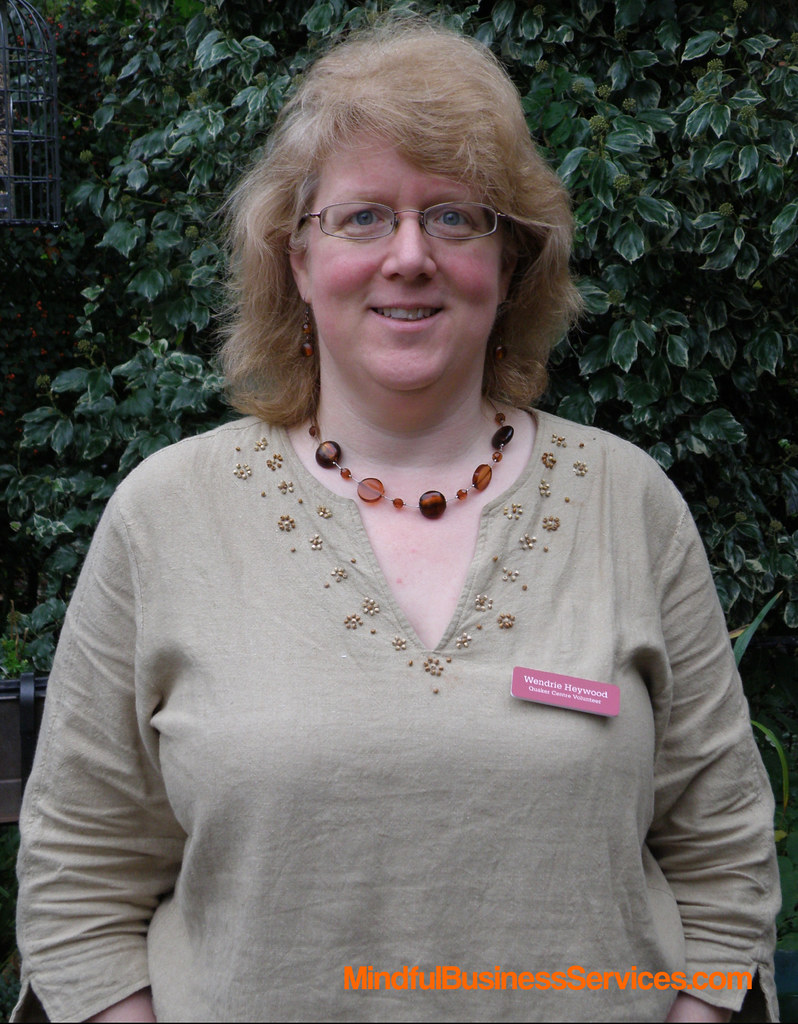

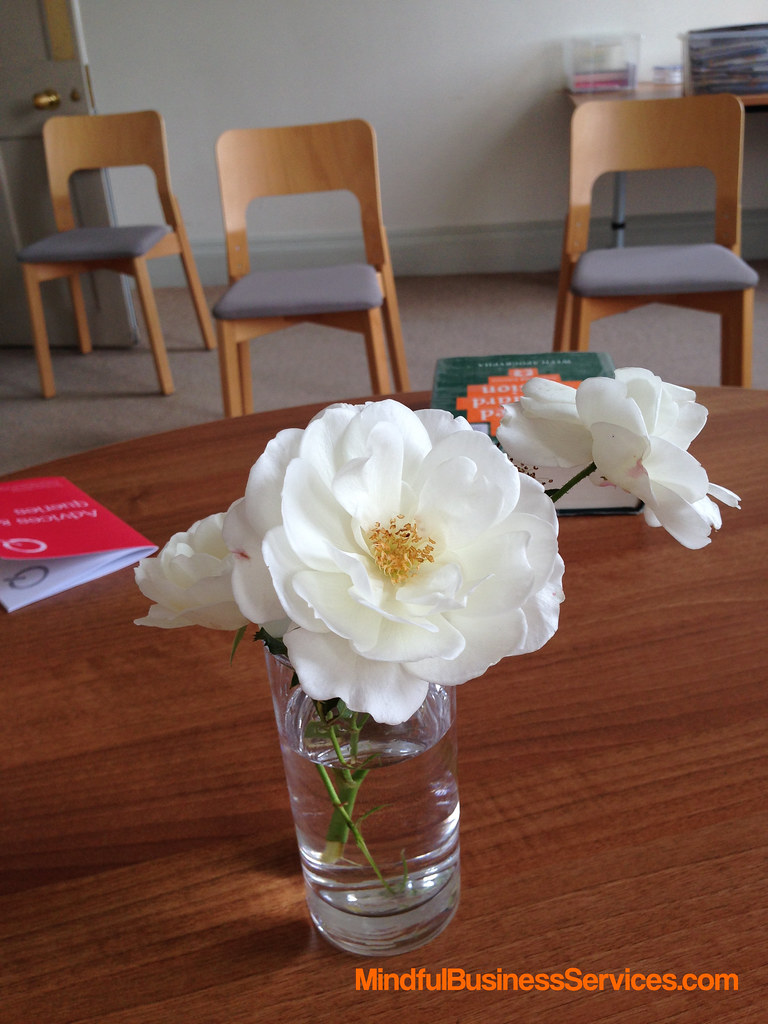
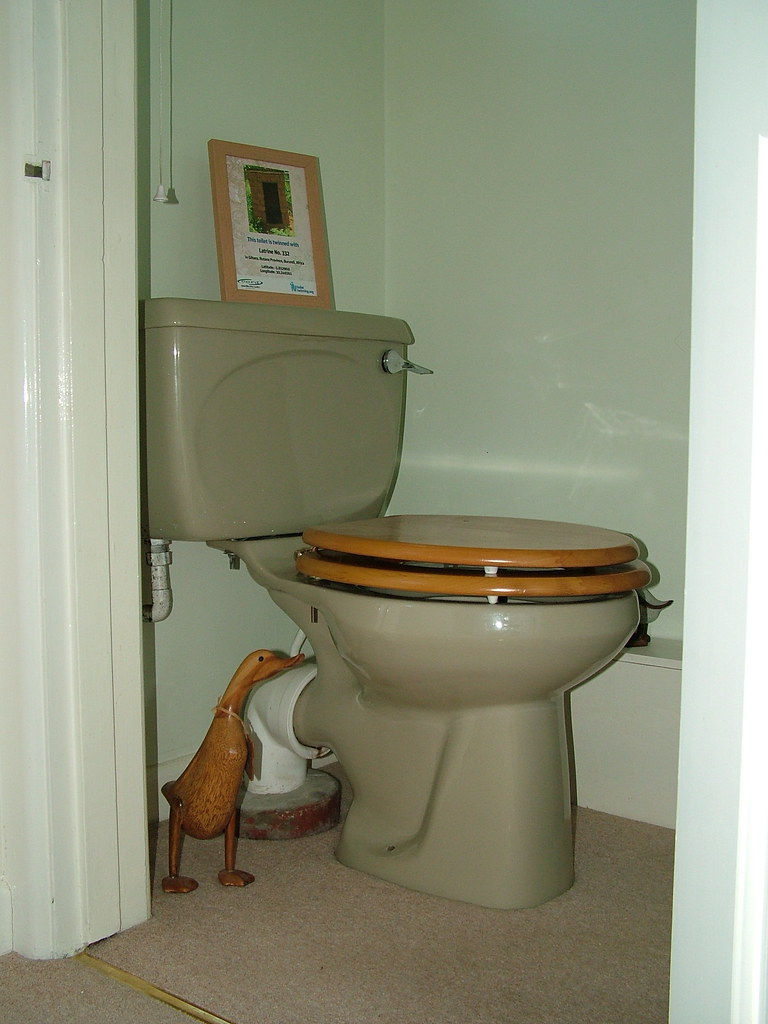





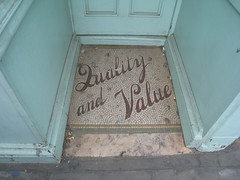
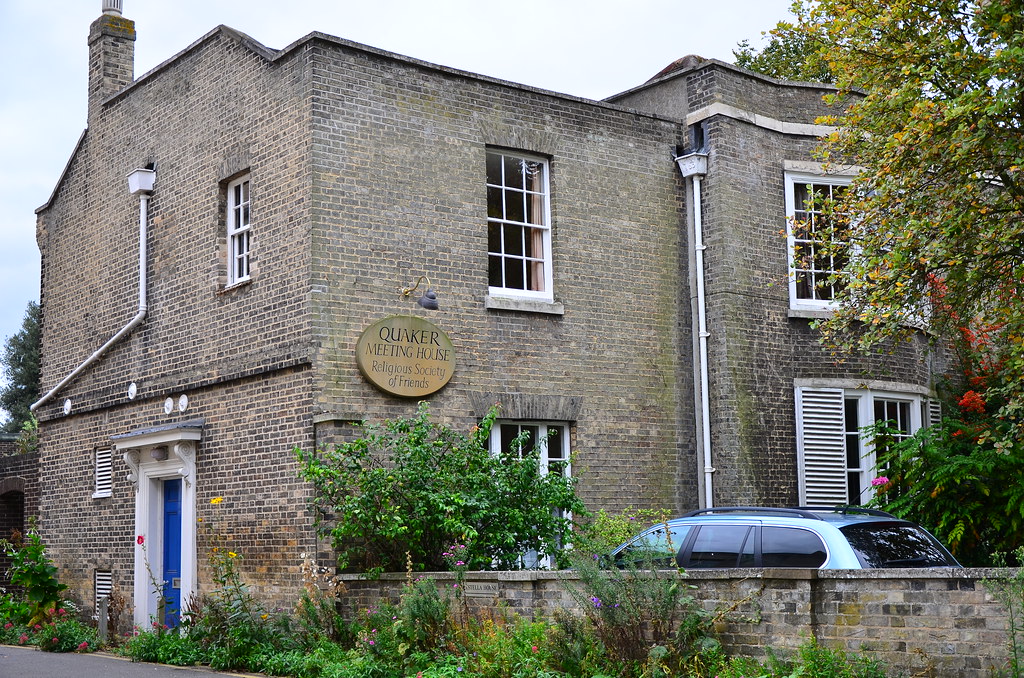

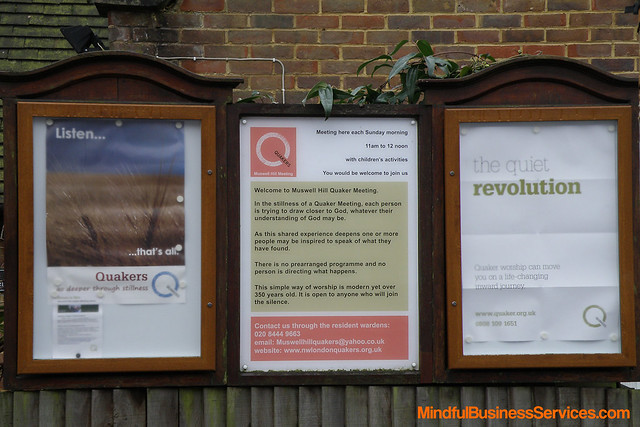

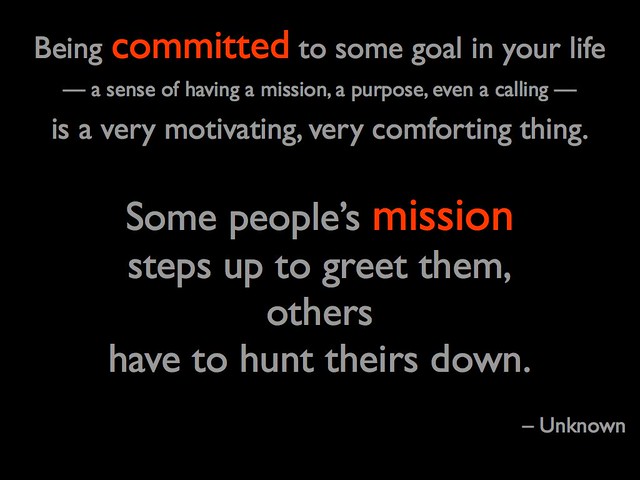

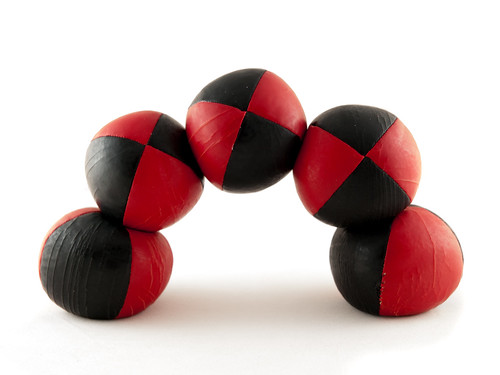 This is part of the Quaker Alphabet Project – click here for more information.
This is part of the Quaker Alphabet Project – click here for more information. This is part of the Quaker Alphabet Project – click here for more information.
This is part of the Quaker Alphabet Project – click here for more information.